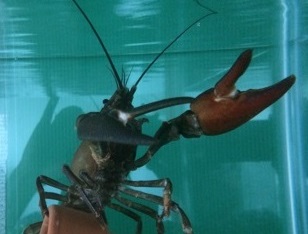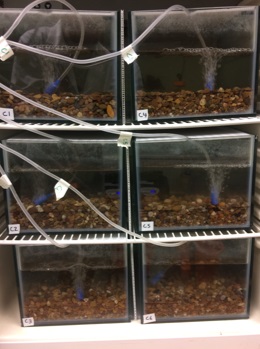Adam’s Story
Small projects can have big impacts. Dr. Adam Algar of the University of Nottingham applied for funding to advance knowledge on how climate warming will affect invasive signal crayfish in the UK.

“Why are we studying signal crayfish now?” Adam asks. “The answer: climate change. If climate change warms UK waters, crayfish will warm up too. This matters, because temperature determines the pace of life: metabolism, growth and even swimming speed all depend on temperature.”
“In this work, we took crayfish into the lab to measure how temperature affects feeding and burrowing. We found that as water warms, they eat more – until the water reaches 25°C, when the heat begins to take its toll. In contrast, burrowing doesn’t depend on temperature at all.”
This work has implications on how climate change will affect biodiversity in the UK. In this instance, research suggests that these invasive species will be more successful the warmer the climate becomes.
Adam recognizes there is more work to be done. “We still need to learn more about how native species respond to temperature before we can draw firm conclusions about the effects of climate change on these invaders. As all research should do, our work has answered several questions, but also opened new avenues for discovery.”

Adam says that without this research grant, the work would not have been possible, and it kick-started new avenues of investigation with the team since recording additional results.
“The funding allowed me to embark on a new(-ish) research area that I did not already have a substantial track record in, allowing me to carry out exciting and risky new research. I doubt other funders would have taken the risk.”
“The BES grant programme is excellent. There is a dearth of funding for smaller projects in the ecological sciences and yet they play a key role for not just achieving important and interesting research, but also building experience and a funding track record for early career scientists.”
Like what we stand for?
Support our mission and help develop the next generation of ecologists by donating to the British Ecological Society.